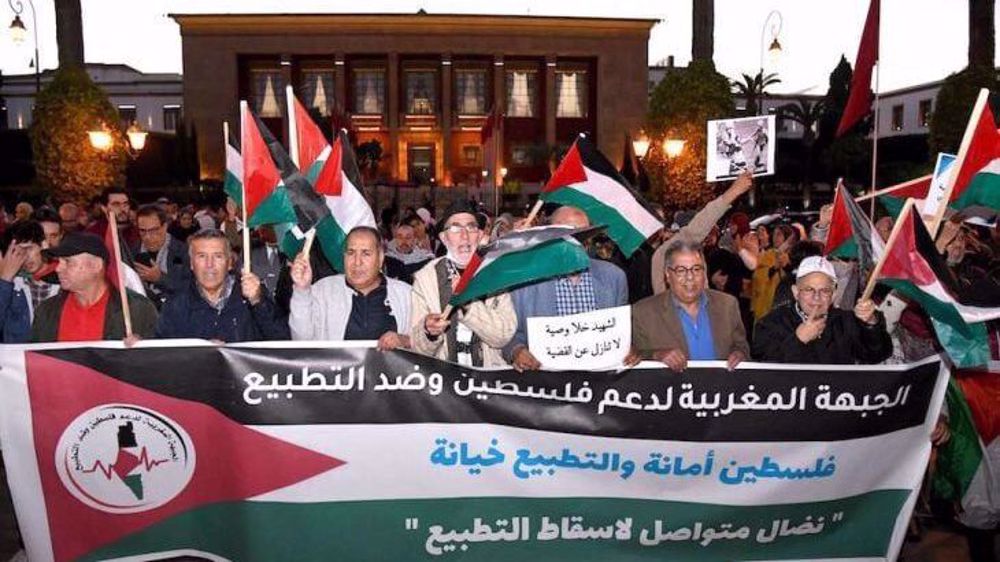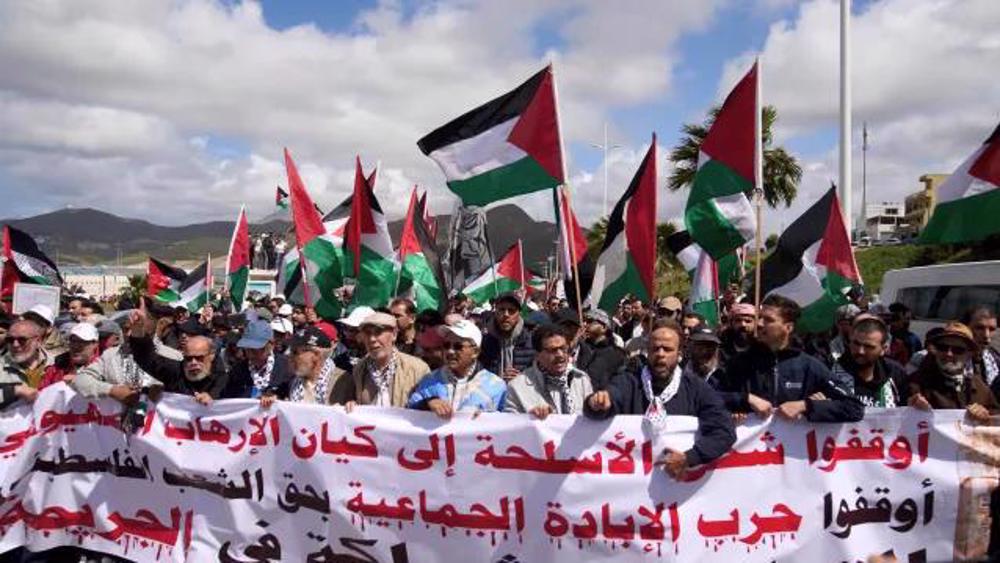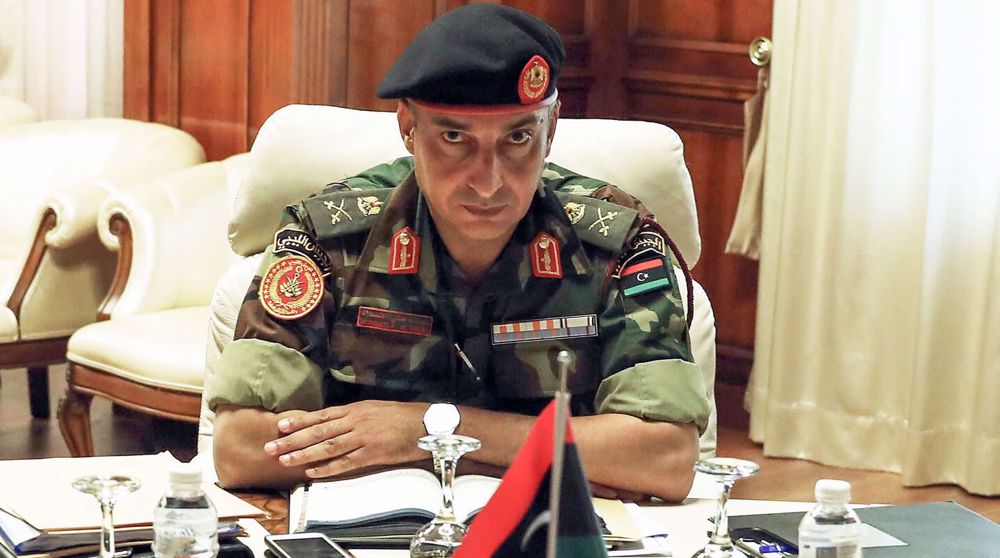Libyan troops drive back Haftar loyalists south of Tripoli
Forces supporting Libya’s UN-recognized Government of National Accord (GNA) have managed to push back militiamen loyal to the renegade commander of the self-styled Libyan National Army (LNA), Khalifa Haftar, dozens of kilometers south of Tripoli as fighting around the capital continues unabated.
Reuters reported on Tuesday that Haftar's forces were repulsed more than 60 kilometers (37 miles) southwest of the capital as troops aligned to the internationally recognized government targeted them.
Local sources said the small town of ‘Aziziya was fully under the control of forces backing the Tripoli administration, with shops reopening after days of fierce skirmishes.
Haftar launched his deadly campaign on April 4, when he ordered his loyalists to invade Tripoli and seize it from troops aligned to the GNA.

In recent days, troops loyal to Tripoli have driven back the LNA forces in the southern suburb of Ain Zara. Militiamen loyal to Haftar have, however, said they had launched air strikes on military sites in the capital.
The clashes have raised fears of a worsening conflict in the North African country.
Meanwhile, the World Health Organization (WHO) spokesperson, Tariq Jarasevic, told reporters on Tuesday that the death toll from ongoing fighting between rival Libyan forces in Tripoli has risen to 264.
He added that some 1,266 people have also been wounded since the beginning of the battle nearly three weeks ago.
Jarasevic further noted that at least 21 of the deceased and 69 of the injured were civilians.
Additionally, the United Nations High Commissioner for Refugees (UNHCR) said 32,000 civilians have been displaced since the beginning of the conflict.
“We call on the parties for the protection of civilians and humanitarian aid,” UNHCR spokesman Barbar Baloch said.
On Monday, the UN's deputy envoy to Libya Maria do Valle Ribeiro expressed concern over "the increasing rate of displacement" and stressed that the world body needs to ramp up its humanitarian response in the conflict-plagued Arab country.
“We are likely to see a continuation of hostilities for some time to come,” Ribeiro said at a press briefing in Tripoli.
She added, “For that we need to gear up and accelerate and increase our capacity to be able to respond.”
“We're also very concerned by the fact that displacement is continuing at an increasing rate every day,” the top UN official told reporters.
African leaders urge ceasefire in Libya
Furthermore, leaders participating in the African Union (AU) summit in Cairo on Tuesday called for an "immediate and unconditional halt" to fighting in Libya.

The AU's Libya "troika", which includes Egyptian President Abdel Fattah el-Sisi as well as his Rwandan and South African counterparts Paul Kagame and Cyril Ramaphosa, urged “all parties to act with restraint” and to facilitate “the delivery of humanitarian aid.”
Libya has been the scene of increasing violence since 2011, when former dictator Muammar Gaddafi was toppled from power after an uprising and a NATO military intervention.
His ouster created a huge power vacuum, leading to chaos and the emergence of numerous militant outfits, including the Daesh terrorist group.

Libya has two rival seats of power: one known as the House of Representatives and based in the eastern city of Tobruk, and another in Tripoli, which is headed by Prime Minister Fayez al-Serraj and enjoys UN recognition.
The White House said on April 19 that US President Donald Trump had personally discussed the situation in Tripoli with Haftar on the phone earlier this week.
The disclosure of the call prompted thousands of people in Tripoli to hold a protest against the US president.
VIDEO | Tehran appreciates Pakistan’s defense of Iran’s sovereignty at UN
VIDEO | US pressure or rights advocacy? Tunisia pushes back
VIDEO | Gaza security trap: Why disarmament without political path risks anarchy
‘How many more have to die?’: Minneapolis mayor demands Trump end ‘invasion’
VIDEO | Criticism grows over Pakistan joining Trump-led 'Board of Peace'
Iraq’s dominant political bloc nominates Nouri al-Maliki for prime minister
Israel moves to restrict Palestinian re-entry to Gaza, ‘encourage outflow’: Report
VIDEO | Iran warns enemies against new 'adventurism'




















 This makes it easy to access the Press TV website
This makes it easy to access the Press TV website